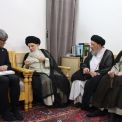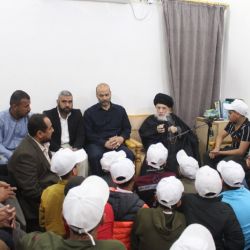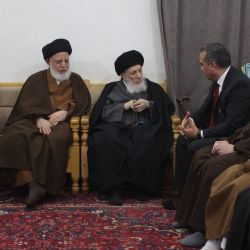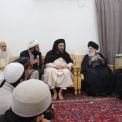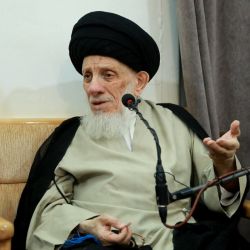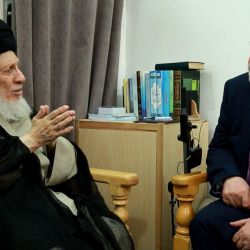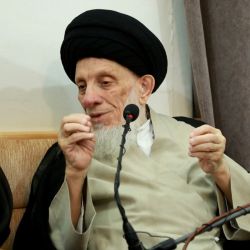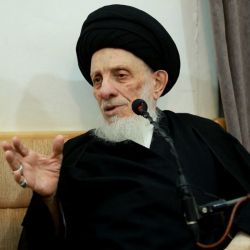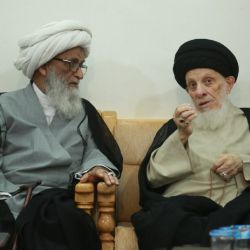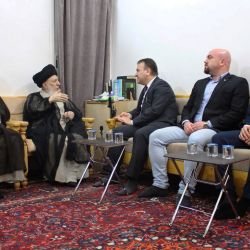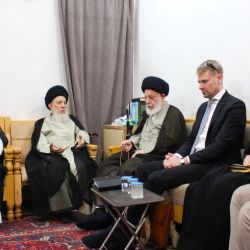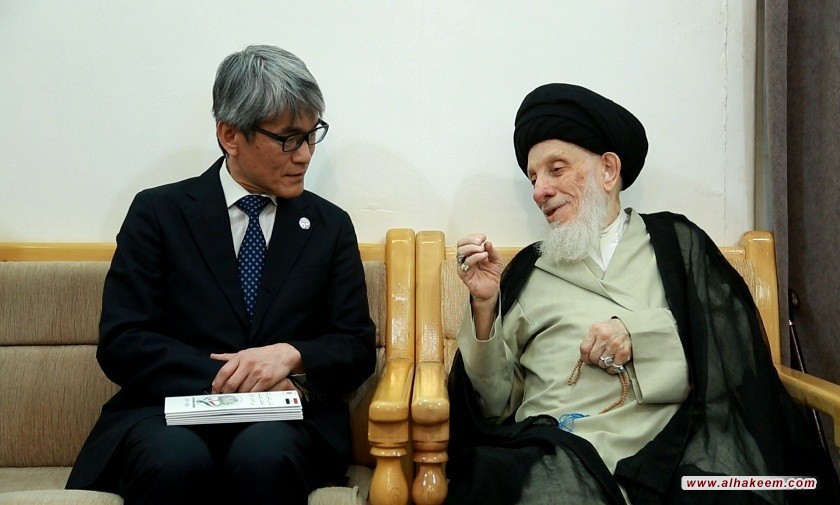
His Eminence Grand Ayatollah Sayyid Mohammed Saeed al-Hakeem received Mr. Naufumi Hashimoto, the new Ambassador of Japan to Iraq, on Tuesday 23 April 2019.
His Eminence clarified to the guest the importance of entrenching the correct religious understandings in societies, in order to safeguard the society from the destruction lofty moral codes.
His Eminence explained the role of Marji'iyya and the Hawza (Islamic Seminary) in having the correct religious, humanitarian and ethical understandings firmly rooted amongst people, in order for them to preserve their identity. Thus society can keep to the great values of Islam which come from the instructions of God Almighty in the Holy Quran and the lives of the Holy Infallibles (peace be upon them). Through attaching oneself to such values, one will be able to defend himself, his land and those things which he deems sanctified, without the need of having such weaponry that the enemies may have, in terms of preparedness and quantity. He reverts to his origin in his religion, his creed and his noble values.
Were it not for all this, people of Iraq would not have been able to defeat the great challenges that they faced of recent times.
His Eminence also mentioned the necessity and importance of communication between different human communities.
The guest expressed his utmost happiness in having this opportunity to meet him, and appreciated the positive role of Marji'iyya in serving society.

